NOA Says Nigeria’s Debt Profile Has Significantly Decreased Under President Tinubu The National Orientation Agency (NOA) has said that Nigeria’s public debt profile has recorded a “significant decrease” since President Bola Ahmed Tinubu assumed office in May 2023, crediting the administration’s economic reforms and prudent fiscal management for the improvement. Tinubu’s New Service Chiefs
NOA Says Nigeria’s Debt Profile Has Significantly Decreased Under President Tinubu

The National Orientation Agency (NOA) has said that Nigeria’s public debt profile has recorded a “significant decrease” since President Bola Ahmed Tinubu assumed office in May 2023, crediting the administration’s economic reforms and prudent fiscal management for the improvement.
Tinubu’s New Service Chiefs Face Steep Road Ahead: Can They Deliver On Security Targets?
According to the agency, the Tinubu-led government has taken deliberate measures to reduce the country’s borrowing dependency, restructure existing debts, and improve revenue generation through both tax and non-tax sources.
Speaking at a press briefing in Abuja, the Director-General of the NOA, Mallam Lanre Issa-Onilu, said Nigeria’s debt position has started to reflect the results of ongoing fiscal reforms, including the removal of fuel subsidies, foreign exchange market unification, and new revenue mobilization initiatives spearheaded by the Ministry of Finance and the Federal Inland Revenue Service (FIRS).
He said, “For the first time in many years, Nigeria’s debt trajectory is heading downward. The Tinubu administration inherited a huge debt burden, both domestic and external, but through discipline, transparency, and economic restructuring, the government has been able to stabilize the debt-to-GDP ratio and reduce the pace of borrowing.”
Issa-Onilu emphasized that debt reduction was not achieved through random cost-cutting, but rather through strategic policies aimed at increasing national productivity and ensuring better value for money. He explained that the government has been implementing a Medium-Term Debt Management Strategy (MTDMS) designed to reduce reliance on high-interest domestic borrowing while securing more concessional financing options.
Fiscal Discipline and Debt Restructuring
He noted that one of the first steps taken by the Tinubu administration was to conduct a comprehensive debt sustainability review in collaboration with the Debt Management Office (DMO). This review, he said, led to the renegotiation of certain loan terms, debt swaps, and improved fiscal coordination between federal and subnational governments.
“The President directed that every kobo borrowed must be tied to a revenue-generating or self-liquidating project,” Issa-Onilu said. “This means we are no longer borrowing for consumption or recurrent expenses but for capital investments that will yield returns.”
He also said the federal government has started clearing part of the outstanding ways and means advances from the Central Bank of Nigeria (CBN), a move that has helped reduce monetary pressures and improve fiscal credibility.
Revenue Growth and Economic Reforms
The NOA chief said the government’s reforms have led to improved non-oil revenue, particularly through better tax collection and digitalization of government payments. The introduction of the Presidential Fiscal Policy and Tax Reforms Committee, chaired by Taiwo Oyedele, has reportedly improved efficiency in the tax system and expanded the tax net to include informal sector players.
“The revenue base is growing steadily,” Issa-Onilu added. “The FIRS, Customs, and other revenue agencies have been harmonized under a single fiscal strategy. Leakages are being blocked, and wastages in the public sector are being minimized through the Treasury Single Account (TSA) and the Integrated Payroll and Personnel Information System (IPPIS).”
According to him, the increase in government earnings has reduced the need to rely heavily on borrowing to fund the national budget. He added that the administration has also attracted foreign investments and donor support, which have helped to ease fiscal pressures.
Debt Transparency and Accountability
The NOA said the Tinubu government has enhanced transparency around Nigeria’s debt data, ensuring that the public has better access to information about the country’s financial commitments.
“The Debt Management Office now publishes quarterly debt reports that clearly show the composition and sustainability levels of both domestic and external debts. This transparency builds investor confidence and reassures Nigerians that their government is managing debt responsibly,” Issa-Onilu said.
He maintained that the administration’s goal is to achieve a sustainable debt-to-GDP ratio below 35 percent, in line with international best practices.
Economic Impact and Public Perception
Issa-Onilu urged Nigerians to understand that the benefits of the reforms will take time to fully materialize, noting that economic transformation requires consistency and patience.
He stated, “The policies may have caused temporary hardship, but they are necessary sacrifices to reposition Nigeria for long-term stability. Debt reduction is not just about numbers—it is about creating fiscal space to invest in infrastructure, education, health, and job creation.”
He further explained that the decline in Nigeria’s debt levels would also boost the country’s credit rating and enhance investor confidence in the economy.
NOA’s Call for Public Support
The NOA appealed to citizens to support government efforts by paying taxes, promoting local production, and patronizing made-in-Nigeria goods. The agency reiterated its role in enlightening the public about the economic direction of the country and countering misinformation about national finances.
“We must all take ownership of our economy. The government is doing its part to reduce debt and stabilize the system, but Nigerians must also contribute by supporting local industries, obeying fiscal laws, and promoting national interest,” Issa-Onilu said.
He concluded by assuring that President Tinubu’s administration remains committed to fiscal prudence, accountability, and the vision of achieving a stronger, self-reliant Nigerian economy.
“Nigeria’s debt is no longer growing unchecked. We are finally witnessing a turning point where responsible governance meets economic recovery,” he said .



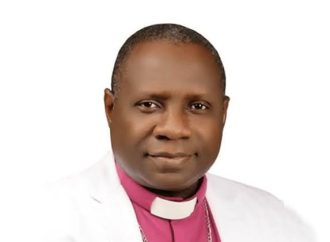
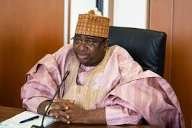
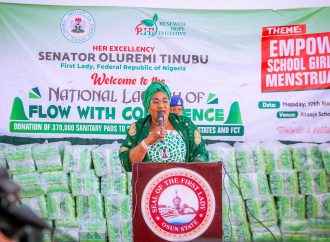
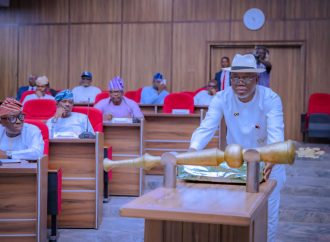





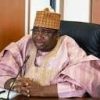






Leave a Comment
Your email address will not be published. Required fields are marked with *